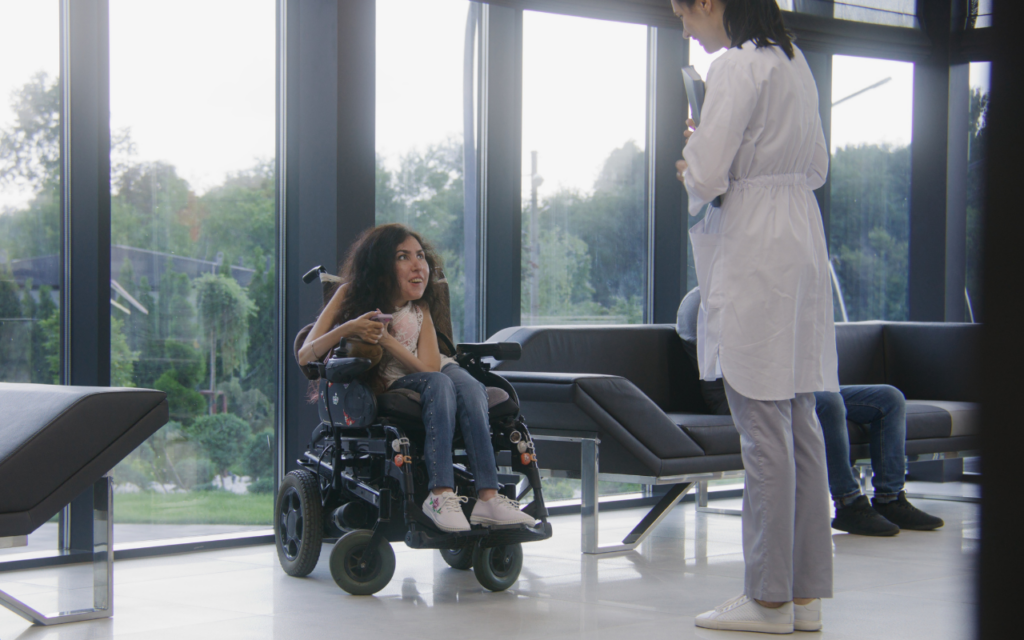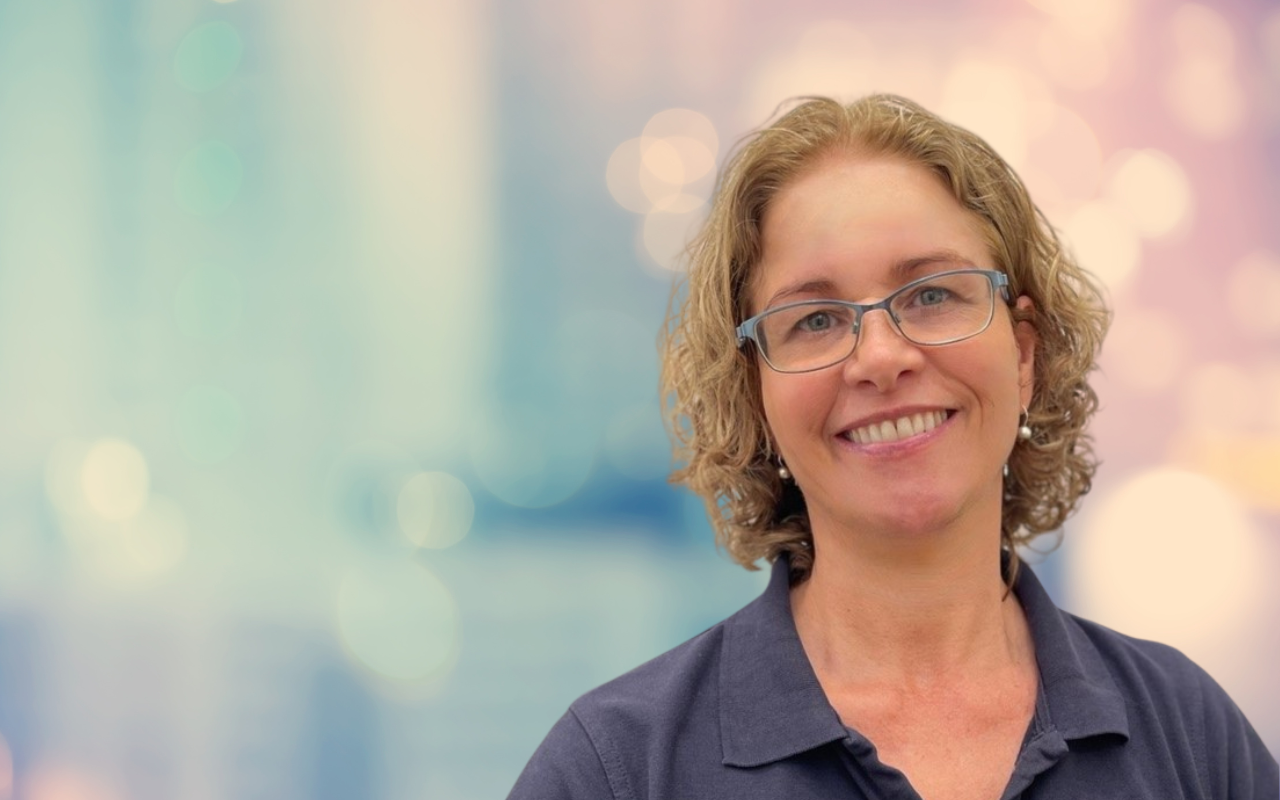Doctors are in the perfect position to be forerunners when integrating disability awareness into health care. Access for all: disability awareness for health providers is the perfect platform to instigate this change.
People with disability have unacceptably poor health when compared to people without. Considering that one in six Australians or approximately 4.4 million people, live with disability, it is arguably a rudimentary requisite for all health providers to work towards narrowing this modifiable disparity. A preliminary but crucial step towards better health for people with disability, is disability awareness. Improved disability awareness facilitates health care access, enhances person-centred care and assists in meeting health providers’ legal obligation to provide inclusive and equitable care for people with disability. Actioning these fundamentals of health care provision will lead to improved health and wellbeing for this cohort. Conversely, suboptimal disability awareness within the health industry contributes to reduced health care access, and therefore exacerbates poor health outcomes and widens the health disparity experienced by people with disability.
Recent findings from the Royal Commission into Violence, Abuse, Neglect and Exploitation of People with Disability (Disability Royal Commission) identified suboptimal disability awareness among health providers as a contributor to the many inequities and injustices experienced by people with disability. A subsequent recommendation was engagement in continuing professional development (CPD) on disability awareness. Pleasingly, a commendable number of positive responses from medical associations and representative bodies were submitted to the commission. All of these responses indicated support for increased disability awareness across the health industry. This momentum towards improved health care for people with disability provides an opportunity for doctors to embrace disability awareness, enabling them to provide equitable health care and improve access for people with disability.

How can we fix the problem?
Medical schools and workplaces tend, necessarily, to focus on discipline- and specialty-specific education and training. However, this leaves a shortfall in disability awareness, which triggers substantial obstacles and deterrents for people with disability when accessing health care. If not rectified early in a doctor’s career, this lack of disability awareness permeates generations of doctors’ practice and careers.
In the first instance, to apply disability awareness to health care, “access” should be interpreted more broadly than just physical access. Access includes the physical access of health facilities and clinic rooms; however, it also considers discrimination, communication, attitudes, bias (conscious and unconscious), assumptions, recognising and understanding behaviours, coordination of care, cost, waiting times, and the inclusion of carers, support workers and family members.
Lack of disability awareness among doctors isn’t due to reluctance or lack of empathy. The knowledge and skills gap are, at least in part, due to a lack of discipline-specific CPD on disability awareness. CheckUP Australia has developed Access for all: disability awareness for health providers (Access for All), an online disability awareness course developed specifically for people working in the health industry.
Access for All is CPD claimable and supports health accreditation standards. The online disability awareness course was developed in partnership with people with disability, disability advocacy organisations, and health providers (including medical professionals). Access for All encourages an understanding that the barriers to health care access extend beyond just physical access and emphasises the influential role health providers play in reducing these barriers. The online course also provides practical strategies and usable resources and tools to assist in improving the accessibility of health services for people with disability.
CheckUP Australia was pleased to see that Access for All achieved what it was developed to do, that is, improve disability awareness among health providers. The independent evaluation of Access for All used a robust, mixed method approach to reveal a statistically significant improvement in disability awareness. Also encouraging, was that 97% of respondents reported an intention to improve the accessibility of the health service they provide. Evaluation participants also reported several key areas of learning and insight. The importance of effective communication, a broad understanding of accessibility, the role of intersectionality, the impact of negative assumptions and bias, and the involvement of family and carers were all seen as necessary considerations for improving disability awareness. Importantly, evaluation of Access for All also reflected an alignment with the components necessary to improve disability awareness and reduce the access barriers to health care for people with disability. Doctors can feel confident that by completing Access for All, they are benefiting from an evaluated CPD activity that is based on best practice and lived experience.
Integrating disability awareness into health care
Systemic integration of disability awareness into health care is required for continued momentum. The urgency of sustained disability awareness within the health industry cannot be understated. Mandatory, and ongoing disability awareness training, along with inclusive policies within the health system are necessary for sustained disability awareness and inclusion.
To magnify the virtue and embodiment of disability awareness within the health system, employing more role models of lived experience would indicate true inclusion of people with disability. Contributions from people with disability would then become more than a tokenistic acknowledgement and would represent meaningful inclusion. More than that though, the insight and experience that people with disability bring to the workplace would benefit all people within the health care system and indeed within society as a whole.
The medical profession is presented with an opportunity to be the forerunner in integrating true inclusion and equity into health care. Embracing this is imperative as it is accessible, inclusive and equitable health care that will improve the health and wellbeing of people with disability, thereby reducing the disparity in health that currently exists.
Amanda Frier, the manager of CheckUP Australia’s Access for All program, is a dietitian with a PhD on the social determinants of health. Her lived experience of disability and professional qualifications have brought to light the importance of disability awareness among health providers.
The statements or opinions expressed in this article reflect the views of the authors and do not necessarily represent the official policy of the AMA, the MJA or InSight+ unless so stated.
Subscribe to the free InSight+ weekly newsletter here. It is available to all readers, not just registered medical practitioners.
If you would like to submit an article for consideration, send a Word version to mjainsight-editor@ampco.com.au.

 more_vert
more_vert